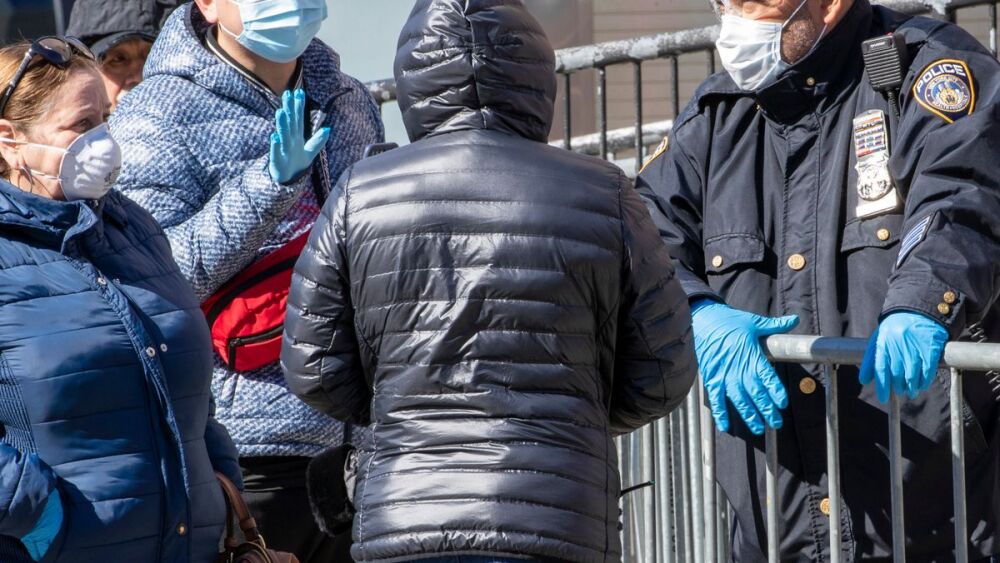Looking for additional tips on stress management for emergency services personnel during the coronavirus epidemic? Watch this on-demand the webinar First Responders, Stress Management and Coronavirus by former paramedic, law enforcement trainer and resilience expert Mike Taigman.
Across the country – across the world – the COVID-19 pandemic is bringing unprecedented challenges for everyone.
Public safety personnel are some of the hardest hit. They must confront the same stresses as the general public – concern for loved ones, loss of income as family members are laid off from service jobs and trying to care for children who are scared and bored and suddenly home all the time.
But public safety professionals are called to serve, which means they must also put themselves in danger, day in and day out, responding to the needs of others. The pressure is only likely to mount as exposure to the coronavirus depletes public safety staffing, requiring those who can still work to take on more hours.
More than ever, it is important for public safety personnel to be extra aware of their personal health – and not just physical wellbeing. Just as important, personnel must monitor and nurture their mental and emotional health.
Don’t Neglect the Basics
Research has shown that increased stress for prolonged periods of time makes the human body more susceptible to illness. While we are learning more and more each day about COVID-19 and researchers and medical professionals are working hard to try to minimize the spread, we are likely in this for the long haul. Good overall health will make you more resilient to illness. Eating healthy, sleeping regularly, exercising and keeping connected and communicative with friends, family, neighbors and peers are all essential.
Minimize Fear
Around the world people, are stopping their regular activities and isolating themselves to help slow the spread of this virus. Such disruption necessarily creates fear. The hoarding of toilet paper and nonperishables may be the most obvious manifestation of that fear.
Adding to the stress of lockdowns and social distancing is an overpowering 24-hour news cycle and pundits and prognosticators galore. Unfortunately, not too many of those folks are spreading positive, insightful and encouraging information. While it is tragic that so many people around the world are suffering and dying from this virus, a majority are surviving. News reports that focus on negativity and the unknown further drive the fear response in many people.
Be sure to limit your exposure to this negative input. Find a news source or two that provide reliable, unemotional information to help you stay well-informed. (I recommend the COVID-19 pages on Lexipol’s digital communities: PoliceOne, EMS1, FireRescue1, Corrections1.) Limit the time you spend consuming news, too. It’s easy to lose several hours as one story links to another and compelling personal accounts grab our hearts as well as our minds. Ask yourself whether what you’re reading adds to your understanding of our present situation in a way that is actionable. Will this article or video change what you’re doing? If not, it might be best to turn it off or put the phone down.
Give Yourself Time to Process Emotion
As a public safety professional, you’re not only dealing with your own emotions and the emotions of your friends and family members. As you serve in the line of duty, you confront a wide range of emotional responses to this pandemic. That is a lot of emotion!
As you navigate this unique and ever-evolving period, it’s imperative to take time to process your thoughts and emotions. Doing so will make you more effective while on duty.
It is as simple as breathing! All it takes is being conscious of that natural, subconscious act of inhaling and exhaling. Simply taking five minutes at the beginning of the day to sit in a quiet spot, maybe close your eyes, focus on your body’s process of breathing, and “check-in” with yourself can make a difference in your entire day.
In the world of mindfulness and meditation, the breath provides the foundation of a new level of self-awareness. Meditation is simply a moment to disengage the brain and all those thoughts being processed and pay attention to your body, where your feelings and your emotions reside. When you become more aware at that level, you will operate more clearly and thoughtfully during your day. You will be more resilient to the inputs coming your way while on duty.
If this process is new to you, it may make it easier to use any number of guided meditations you can easily find online, some long, some short. If you can, try to take another 2-3 minutes periodically throughout the day to stop and focus on what your body is doing – not what your head is telling you, but what your body is feeling. Process those feelings and emotions someplace you feel safe doing so. Don’t pile more into that “emotional duffle bag” to be carried onto the next shift or to the next call for service.
Stay Strong
We need our public safety heroes healthy and strong on all fronts. We cannot ignore that they are human and are living through this period of uncertainty with the same feelings and stresses as everyone else.
You may feel compelled to fight the fear of the coronavirus by pushing yourself harder, taking on additional shifts while also trying to keep up with your regular responsibilities at home. This reaction is admirable – and we all need to step up. But it’s equally important to invest in self-care. Only then can we be ready for what the next shift brings.




